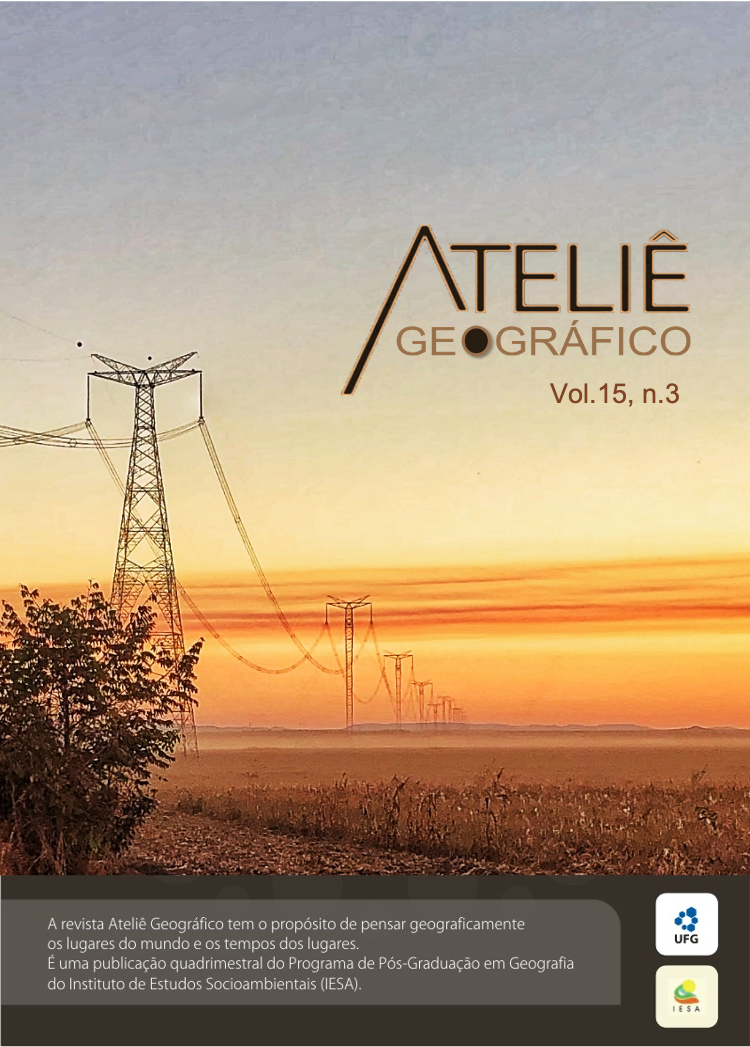From fishing village to tourist real estate complexes: spatial practices in the transformation of the metropolitan coast
DOI:
https://doi.org/10.5216/ag.v15i3.69192Abstract
In a logic of occupation marked by the convergence of real estate and tourism capital, the metropolitan coastline of the Brazilian Northeast region has been a strategic space, in the 21st century, for the implementation of mega real estate tourism enterprises, of which we highlight the Tourist Real Estate Complexes. With the case study of the Vila Galé Cumbuco Complex, located in the municipality of Caucaia, in the metropolitan region of Fortaleza, Ceará, we analyze the spatial practices of the agents that produce hegemonic space involved in the management of the territory, highlighting the entrepreneurs of tourism and real estate capital, the State and landowners. Supported by bibliographic and documentary research in official gazettes of the state and municipality, journalistic articles and legislation, the article argues that the practices of selectivity, anticipation and spatial fragmentation are substantial in the transformation of coastal metropolitan spaces, and its readings elucidate the spatial content of decisive actions that are not limited to the administrative/business nature.
Keywords: Spatial practices. Hegemonic agents. Tourist Real Estate Complexes.
Downloads
Downloads
Published
How to Cite
Issue
Section
License
Autores que publicam nesta revista concordam com os seguintes termos:- Autores mantém os direitos autorais e concedem à revista o direito de primeira publicação, com o trabalho simultaneamente licenciado sob a Licença Creative Commons Attribution que permite o compartilhamento do trabalho com reconhecimento da autoria e publicação inicial nesta revista.
- Os autores não serão remunerados pela publicação de trabalhos na Revista Ateliê Geográfico. Além disso, os conteúdos publicados são de inteira e exclusiva responsabilidade de seus autores, ainda que reservado aos editores o direito de proceder a ajustes textuais e de adequação às normas da publicação.
- Autores têm permissão e são estimulados a divulgar seu trabalho online (ex.: em repositórios institucionais ou na sua página pessoal), já que isso pode gerar alterações produtivas, bem como aumentar o impacto e a citação do trabalho publicado (Veja O Efeito do Acesso Livre).


